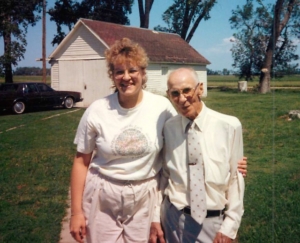Where do you start to tell your family stories? How do you begin to preserve and share all the photos, slides, movies/videos, special items like medals and jewelry? For some, it’s so overwhelming, they keep putting it off. I recommend a different approach. Set aside a small amount of time every day or every week or month to work on your family history project. And then ask yourself these questions:
- What are my most important goals right now? Then make a list of your priorities, for example:
- Organizing the family photos?
- Getting my Father’s story about WWII written down?
- Finding my Grandmother’s place of Birth?
- Starting our Family Tree?
- Others?
- What info does the family already have? Who has it?
- Who are my oldest relatives and can I contact them?
- Who in my family may be interested in getting the information I have about our history?
- What’s my timeline: Family reunion coming up? Visiting older relatives? Special anniversary?
I also highly recommend calling or visiting your oldest relative as soon as possible. It’s sad that by the time we realize we need some answers, so many of our older relatives are gone.
Have a list of questions ready with the first one being, “I’m very interested in finding out more information about our family. Would you be willing to spend a little time to talk to me and answer a few important questions?” Those questions could be as simple as, what were your parent’s full names? Where and when were they born? Did they have any brothers and sisters? Getting a middle name and exact date and place of birth can help in the search for your ancestor amid the others with the same first and last name.
The questions can also be more sensitive and should be asked carefully and never pushed. Every family has people and events they don’t want to talk about. But it’s worth it to try. I’ll talk more about this issue in another post.
Be ready to write down their answers and better yet, ask if you can record them with audio and/or video. These will become priceless recordings. And most important know that what they can tell you in five minutes will take you five years of research to maybe find the answers.

